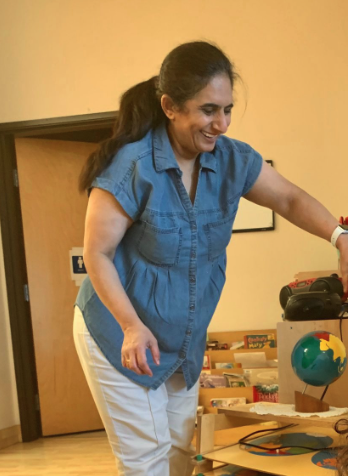
How to Choose a Montessori School This Year
With dozens of options for enrolling in a Montessori school in Plano and surrounding communities, parents often tell us it an overwhelming experience picking the perfect place for their child to thrive. During your research for the best Montessori school, these six attributes should be part of the toddler and primary programs.
Applying the Montessori Education Philosophy
Montessori may seem like a new-age, progressive approach to education, but this educational method has been around since the early 1900s. The basic philosophy is centered on child-led learning that encourages independent interest projects and mixed-aged peer collaborations. Some programs may be fully implemented or partially implemented, which creates different experiences in each school. An authentic program includes:
- Mixed ages classrooms for peer collaboration and mentor-style learning.
- Uninterrupted blocks of time to explore independent interests.
- Interactive, teacher-led, small group learning.
- Zoned learning stations.
Professional Montessori Credentials
Few regulations determine if a school can carry the Montessori label. Of the estimated 4,500 private and publicly funded Montessori schools in the U.S., only a small fraction has received accreditation by the American Montessori Society (AMS). Many schools have aligned with other associations to obtain Cooperative Accreditation. The best Montessori school has teachers who are trained through a preparation program accredited by the Montessori Accreditation Council for Teacher Education.
Engaging Teaching Style
Just as there are few constraints on which topics each child can explore, teachers also have the creative freedom to interpret how to deliver this set of ideas and strategies. Montessori teachers are often portrayed as unobtrusive observers who step in only when needed. In reality, your child’s teacher serves as a critical guide in helping to channel their learning, develop their independence and deepen their critical thinking skills. You want a teacher who listens patiently to your child and answers their questions thoughtfully. Ask the teacher if they lean more toward rewards versus punishments in handling behavior and how they use testing – if at all – to assess skill mastery.
Zoned Yet Unstructured Classrooms
Montessori learning is guided by “freedom with limits.” While there is a standard curriculum that Montessori schools must follow, students can choose from structured activities that the teacher designs. High-quality Montessori books, artistic tools and other approved materials should be available to support your child’s development. Kids should have two to three hours of uninterrupted time to explore zoned spaces while working on the materials of their choosing at their own pace.
Group Learning Environment
The Montessori method believes that learning progresses at an individual pace and age does not define the timeline for mastering a skill. Mentoring is also a critical part of learning since older children get to reinforce their skills. As a result, classrooms have children of mixed ages that are typically within three years of each other. Interactive, teacher-guided lessons are given in small groups. This gives teachers the time to assess each child’s understanding of the material.
A Feeling of Community
You should always feel included in your child’s learning journey! The purpose of a Montessori education is to nurture a lifelong love of learning, so your school’s efforts to keep you in the loop and get your feedback really matters. Along with monthly newsletters and calendars, you should receive regular updates about what your child is working on and how they are progressing. You should feel welcome in the classroom at any time and have opportunities to get involved in parent committees.
Do Your Research
Researching the best Montessori school in Plano requires a different approach than evaluating public schools. You don’t have to worry about teacher-to-student ratios so that your child receives individual attention for their learning styles and needs. Comparing test scores also won’t be helpful since most Montessori curriculum does not include testing. Those that do use standardized tests rarely share the results with teachers, parents, students or the public.
After doing your initial Google search of “Montessori schools near me,” dig into the online reviews and ask your neighbors for recommendations. Once you have narrowed down the list, then take a tour of each place to see the differences for yourself. When you see happy children, an engaging learning environment, peaceful teachers and positive energy, then you will know that you are in the right place.
If you are looking for an outstanding Montessori school near Frisco or in Plano, make sure you add the American Montessori Campus to your list. Our 11,000-square-foot campus is a playground of innovative learning for infants, toddlers, primary and kindergarten kids. Through STEM-enriched curriculum, an indoor gym, a courtyard garden and classes in computers, music, dance and Spanish, your child will be motivated to become an independent, lifelong learner. Our director is available at (972) 473-2600 to help guide you through the process of selecting a daycare center or preschool program.
Learn more:
How Tactile Learning Enhances Your Child’s Education
Best Montessori Holiday Routines
